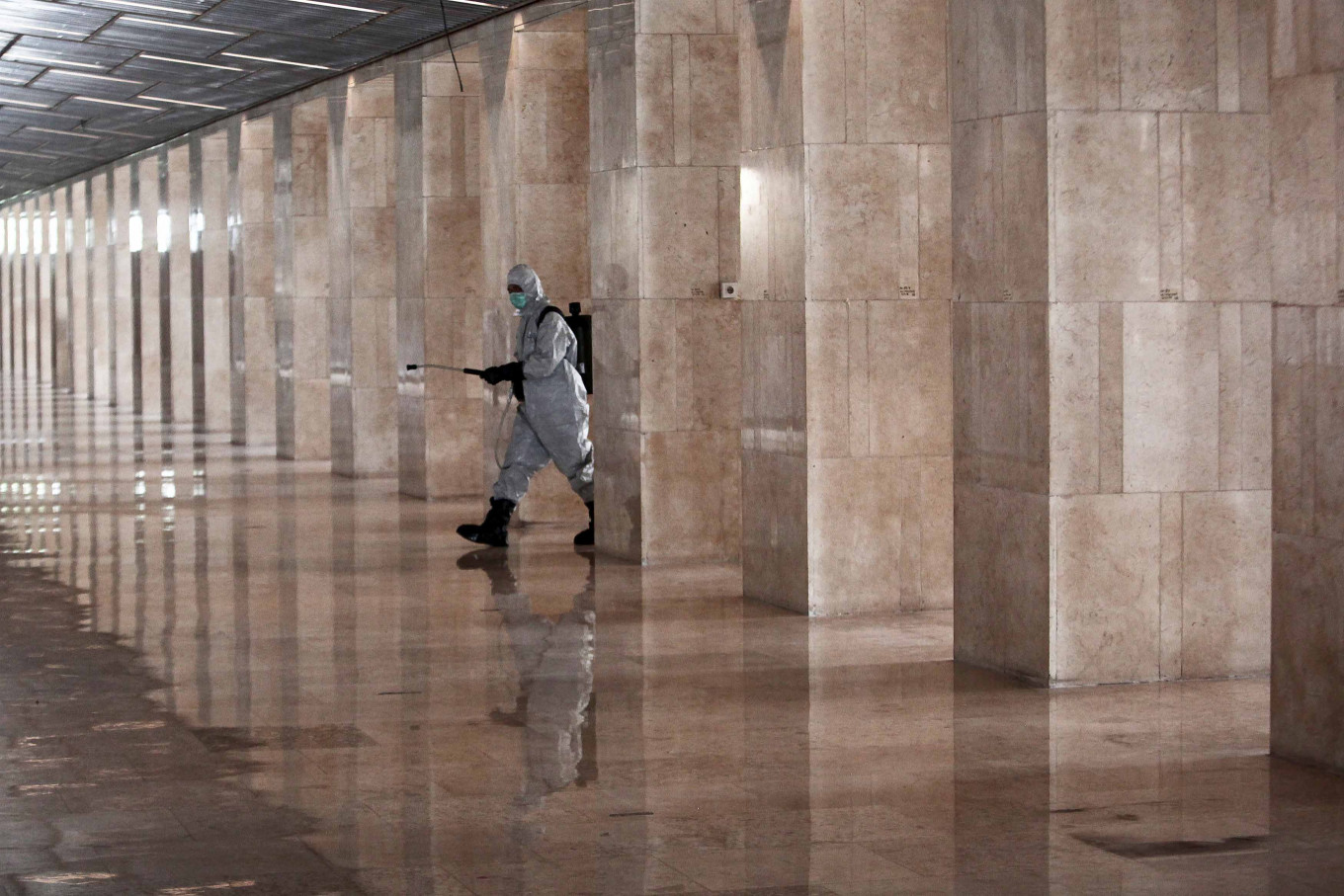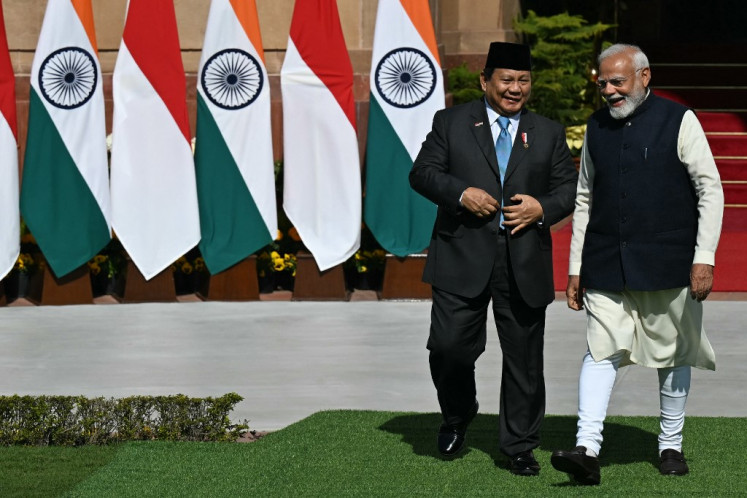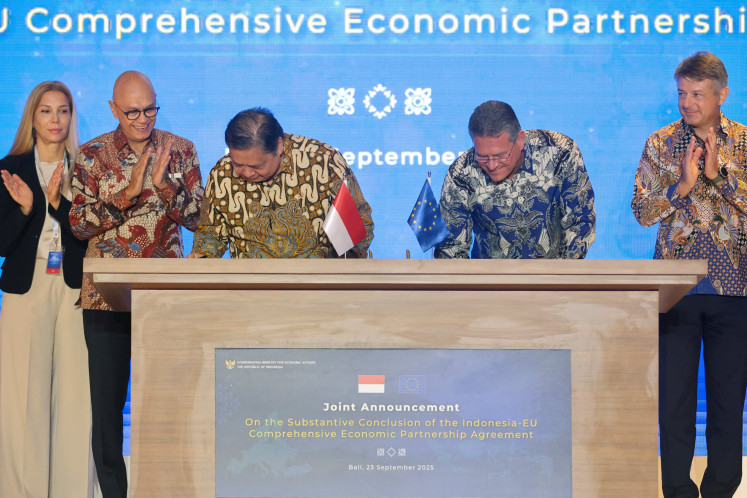Popular Reads
Top Results
Can't find what you're looking for?
View all search resultsPopular Reads
Top Results
Can't find what you're looking for?
View all search resultsBold action in pandemic
The government’s ineptitude is frustrating not only for the anxious public who fears contagion but also for local administrations, which are at the frontline to battle the disease.
Change text size
Gift Premium Articles
to Anyone
H
ow much is too much? How little is too little? In handling the novel coronavirus (COVID-19), which has been declared a pandemic, it is apparent that the government hardly knows the difference.
As more cases emerge and more patients arrive at hospitals already in serious condition, while not knowing whether they have contracted the disease, the government is still struggling to coordinate a response and surveillance measures to contain the spread of the virus. At least four positive patients have died and at least another eight reportedly passed away while showing symptoms of the disease.
The government’s ineptitude is frustrating not only for the anxious public who fears contagion but also for local administrations, which are at the frontline to battle the disease.
Jakarta Governor Anies Baswedan took the initiative to create a special desk tasked with keeping the public informed and respond to reports of cases, prompting thousands to contact the call center and hundreds to visit hospitals to get their health checked. While the governor maintained the central government’s policy of not revealing the location of COVID-19 patients, a reportedly leaked document from the city administration showed that 16 confirmed cases were in Jakarta as of Tuesday.
Banten Governor Wahidin Halim announced on his Facebook account on Thursday that two residents had tested positive for the virus. His announcement was later disputed by a government spokesperson, Achmad Yurianto, who also confronted the governor about how he had discovered the cases.
If the government insists on walling off itself from the public at this time of the crisis, more regional administrations and even health workers may choose to take their own stand to fight the virus. They may take more initiatives to trace cases themselves or even purchase their own test kits to help patients who have voluntarily reported themselves at hospitals.
To many health experts and observers, the fumbling of President Joko “Jokowi” Widodo’s administration during this health crisis is beyond comprehension, particularly given Indonesia’s earlier experiences with epidemics.
Critics say the government has enough resources to conduct a more prepared response given the expertise and experience it had accumulated during an avian flu outbreak 10 years ago. The country even had a protocol for responding to a pandemic at the time.
Given such knowledge and capability, it is almost a crime that the government has let everything go down this
way. The COVID-19 pandemic may have taken lives unnoticed and many may be suffering without getting the proper medical help.
The 2009 Health Law mandates the government to announce an outbreak to the public and name locations that have become centers of a disease. It is also obliged to monitor patients and cooperate with the people or other countries to combat an outbreak. Although the government has successfully evacuated Indonesian citizens from Wuhan, China, and other centers of the pandemic overseas, it is far from adequately managing the crisis at home.
This is already an emergency. Jokowi should remove anything or anyone, including his own officials, should they get in the way of the country’s efforts to combat the pandemic.










